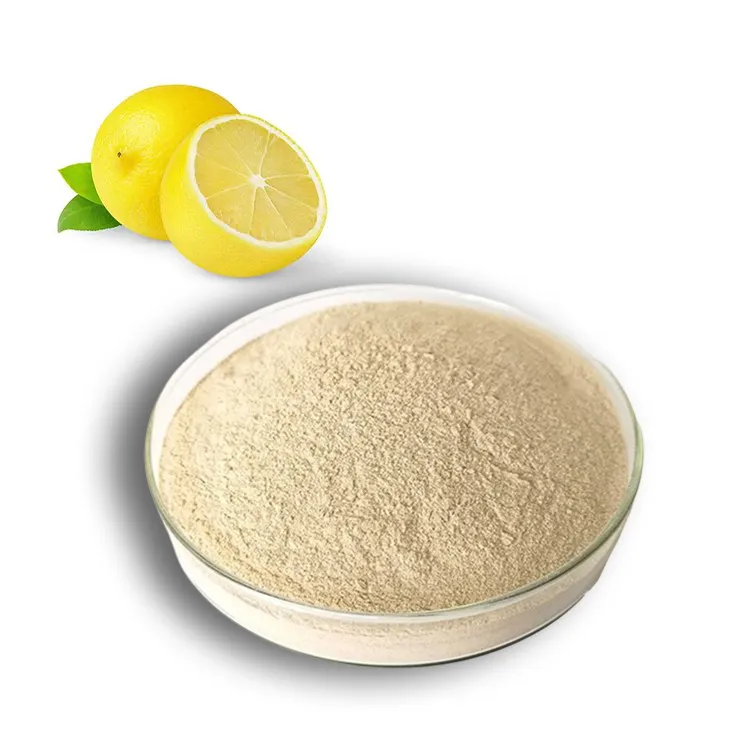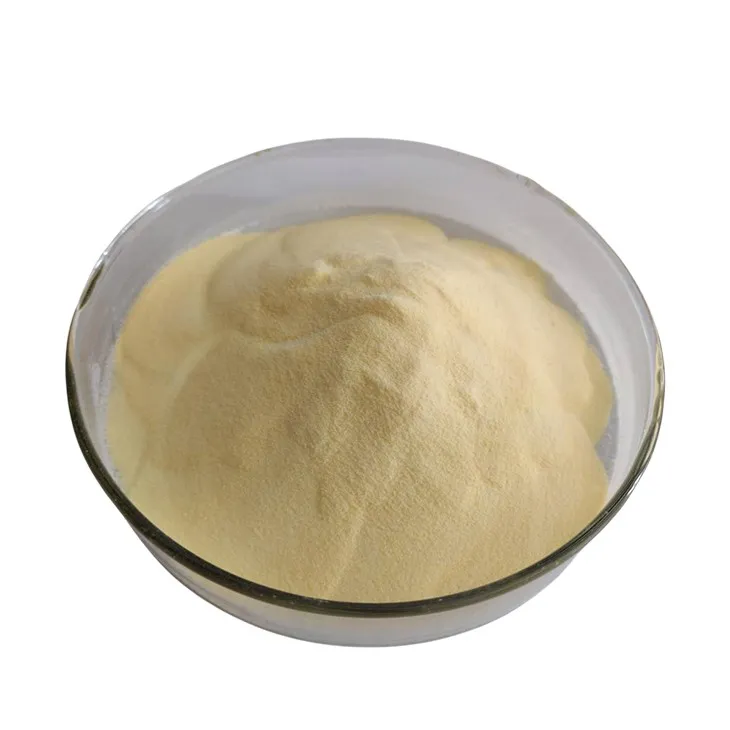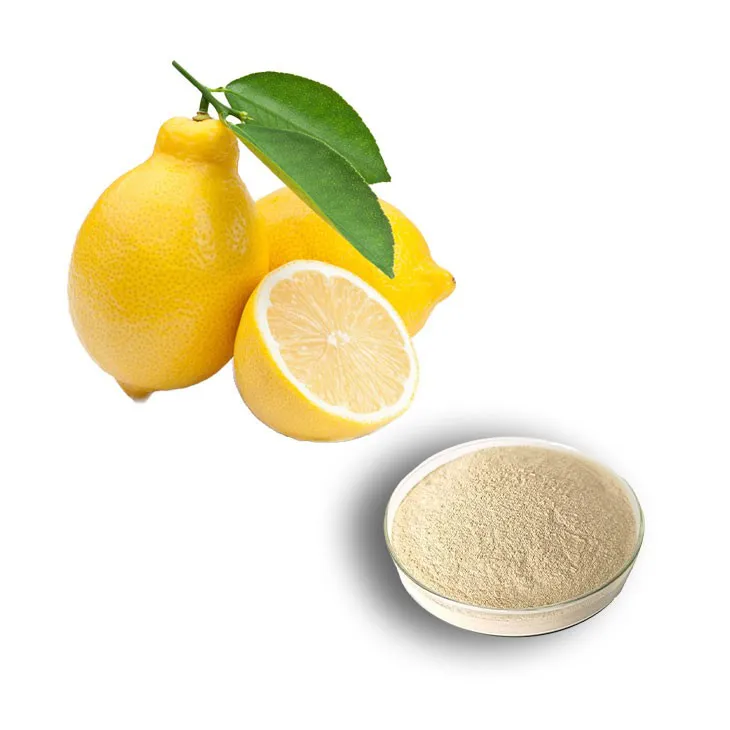- 0086-571-85302990
- sales@greenskybio.com
Lemon extract is a heroic ingredient that your skin needs without you knowing it.
2024-11-12

Introduction
When it comes to skincare ingredients, there are the well - known stars like hyaluronic acid and retinol. However, Lemon Extract is an ingredient that often goes unnoticed, yet it has a plethora of benefits for the skin. This natural extract is a powerhouse, filled with essential nutrients that can transform the health and appearance of your skin.

The Nutritional Powerhouse: What's in Lemon Extract?
Vitamin C
Lemon Extract is an excellent source of vitamin C. This vitamin is crucial for the skin as it plays a vital role in collagen synthesis. Collagen is the protein that gives our skin its structure and elasticity. As we age, collagen production decreases, leading to wrinkles and sagging skin. Vitamin C in lemon extract helps to stimulate collagen production, keeping the skin firm and youthful. It also helps in the repair of damaged skin cells, which is beneficial for those with acne scars or other skin imperfections.
Antioxidants
Another important component of lemon extract is its high antioxidant content. Antioxidants are substances that fight against free radicals in the body. Free radicals are unstable molecules that are produced as a result of environmental factors such as pollution, UV radiation, and smoking. These free radicals can damage skin cells, leading to premature aging, wrinkles, and dull skin. The antioxidants in lemon extract, such as flavonoids, neutralize these free radicals, protecting the skin from their harmful effects.
Exfoliating Acids
Lemon extract contains natural exfoliating acids, such as citric acid. These acids work to gently slough off dead skin cells from the surface of the skin. Regular exfoliation is important for maintaining a healthy complexion as it helps to unclog pores, prevent breakouts, and improve skin texture. By removing the layer of dead skin cells, lemon extract allows the skin to better absorb other skincare products, enhancing their effectiveness.

Benefits for Different Skin Types
For Oily Skin
Lemon extract can be a great addition to the skincare routine of those with oily skin. Its exfoliating properties help to remove excess sebum and dead skin cells that can clog pores and lead to acne. The antibacterial properties of lemon extract also help to fight against the bacteria that cause acne breakouts. By keeping the pores clean and reducing oiliness, lemon extract can help to control shine and give the skin a more matte appearance.
For Dry Skin
Despite being acidic, when used in moderation, lemon extract can benefit dry skin. The vitamin C in it helps to boost collagen production, which can improve the skin's elasticity and reduce the appearance of fine lines. Additionally, the exfoliating action can help to remove the dry, flaky skin on the surface, allowing moisturizers to penetrate more deeply and hydrate the skin more effectively.
For Combination Skin
Combination skin can be a challenge to manage, but lemon extract can be a useful ingredient. It can help to balance the oil production in the T - zone (forehead, nose, and chin) while also providing hydration and exfoliation to the drier areas of the face. By regulating sebum production and improving skin texture, lemon extract can help to create a more even - looking complexion.
For Sensitive Skin
While those with sensitive skin need to be cautious when using lemon extract, it can still offer some benefits. In a diluted form, it can provide antioxidant protection without causing excessive irritation. However, it is important to patch - test first and start with a very small amount to ensure that the skin can tolerate it. If used correctly, lemon extract can help to soothe sensitive skin and protect it from environmental damage.

How to Incorporate Lemon Extract into Your Skincare Routine
DIY Skincare Recipes
- Lemon Extract Toner: Mix a small amount of lemon extract (about 1 - 2 teaspoons) with 1 cup of distilled water. Apply to the face using a cotton pad after cleansing. This toner can help to balance the skin's pH, tighten pores, and brighten the complexion.
- Lemon Extract Mask: Combine 1 tablespoon of lemon extract with 1 tablespoon of honey and 1 tablespoon of plain yogurt. Apply the mixture to the face and leave it on for 10 - 15 minutes before rinsing off. This mask can exfoliate, hydrate, and brighten the skin.
- Lemon Extract Serum: If you are feeling adventurous, you can make a simple serum by mixing a few drops of lemon extract with a carrier oil such as jojoba oil or argan oil. Apply a small amount to the face before moisturizer. This can help to deliver the benefits of lemon extract deep into the skin.
Commercial Skincare Products
Many skincare brands are now recognizing the benefits of lemon extract and are incorporating it into their products. Look for products such as cleansers, moisturizers, and serums that contain lemon extract. When choosing a commercial product, make sure to read the label carefully to ensure that the lemon extract is present in a sufficient quantity and that the product is suitable for your skin type.

Precautions and Considerations
Sensitivity and Allergies
As with any skincare ingredient, some people may be sensitive or allergic to lemon extract. Before using it on your face, it is important to do a patch - test. Apply a small amount of the product containing lemon extract to a small area of skin, such as the inside of your wrist, and wait 24 hours to see if there is any reaction. If you experience redness, itching, or swelling, do not use the product on your face.
Sun Sensitivity
Lemon extract can make the skin more sensitive to the sun. This is because the exfoliating acids in it can thin the outermost layer of the skin, making it more vulnerable to UV damage. If you are using products containing lemon extract, it is important to use a broad - spectrum sunscreen with a high SPF during the day. This will protect your skin from the harmful effects of the sun and prevent sunburn and premature aging.
Proper Dilution
When using lemon extract in DIY skincare recipes, it is crucial to use it in the correct concentration. Using too much lemon extract can be too acidic for the skin and cause irritation. Always follow the recommended ratios in recipes or start with a very small amount and gradually increase if your skin can tolerate it.
Conclusion
In conclusion, lemon extract is a truly heroic ingredient for the skin. Its rich composition of vitamin C, antioxidants, and exfoliating acids offers a wide range of benefits for different skin types. Whether you choose to incorporate it into your skincare routine through DIY recipes or commercial products, it has the potential to transform your skin. However, it is important to be aware of the precautions and considerations when using lemon extract to ensure that you get the best results without any adverse effects. So, don't overlook this underrated ingredient and give your skin the boost it needs.
FAQ:
Q1: How does lemon extract boost collagen?
The vitamin C in lemon extract plays a crucial role in collagen synthesis. Collagen is a protein that gives our skin its structure and firmness. Vitamin C is necessary for the body to produce collagen, and by using products with lemon extract, we can supply our skin with this essential nutrient, which in turn helps boost collagen production.
Q2: Is lemon extract suitable for sensitive skin?
While lemon extract has many benefits, it contains exfoliating acids which may be too harsh for very sensitive skin. However, when used in diluted forms or in products specifically formulated for sensitive skin, it can potentially be beneficial. It's always best to do a patch test first to see how your skin reacts.
Q3: How does lemon extract fight free radicals?
The antioxidants present in lemon extract are what help in fighting free radicals. Free radicals are unstable molecules that can damage cells in our body, including skin cells. Antioxidants neutralize these free radicals, preventing them from causing oxidative stress on the skin, which can lead to premature aging, wrinkles, and dull skin.
Q4: Can lemon extract lighten dark spots?
Yes, it can. The exfoliating acids in lemon extract can help to slough off dead skin cells on the surface of the skin. This can gradually reduce the appearance of dark spots as new, healthier skin cells are revealed. Additionally, the vitamin C in lemon extract can inhibit the production of melanin, which is responsible for skin pigmentation.
Q5: How should lemon extract be used in a skincare routine?
Lemon extract can be used in various forms in a skincare routine. It can be found in serums, moisturizers, or masks. For direct application, a diluted form of lemon juice (mixed with water) can be used as a toner. However, it's important not to overuse it as it can be irritating. Using it 2 - 3 times a week is usually sufficient.
Related literature
- The Benefits of Citrus Extracts in Skincare" - Journal of Cosmetic Dermatology
- "Vitamin C - Rich Ingredients for Skin Health" - Skin Research and Technology
- "Antioxidants in Natural Skincare: A Comprehensive Review" - International Journal of Cosmetic Science
- ▶ Hesperidin
- ▶ citrus bioflavonoids
- ▶ plant extract
- ▶ lycopene
- ▶ Diosmin
- ▶ Grape seed extract
- ▶ Sea buckthorn Juice Powder
- ▶ Beetroot powder
- ▶ Hops Extract
- ▶ Artichoke Extract
- ▶ Reishi mushroom extract
- ▶ Astaxanthin
- ▶ Green Tea Extract
- ▶ Curcumin Extract
- ▶ Horse Chestnut Extract
- ▶ Other Problems
- ▶ Boswellia Serrata Extract
- ▶ Resveratrol Extract
- ▶ Marigold Extract
- ▶ Grape Leaf Extract
- ▶ blog3
- ▶ blog4
- ▶ blog5
-
Organic Tongkat Ali extract powder factory.
2024-11-12
-
How to make powder with ashwagandha extract.
2024-11-12
-
Rosehip extract manufacturers from China.
2024-11-12
-
The best cat's claw extract in nature.
2024-11-12
-
Chinese Dandelion Leaf Extract Suppliers.
2024-11-12
-
Pine bark Extract Powder
2024-11-12
-
Cassia Seed Extract
2024-11-12
-
Hesperidin
2024-11-12
-
White Peony Extract
2024-11-12
-
Beta Carotene
2024-11-12
-
Senna Leaf Extract
2024-11-12
-
Oyster Mushroom Extract Powder
2024-11-12
-
Lemon Juice Powder
2024-11-12
-
Coix Seed Extract
2024-11-12
-
Red Wine Extract
2024-11-12





















